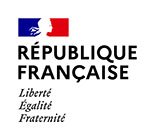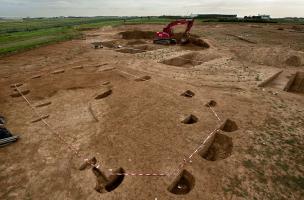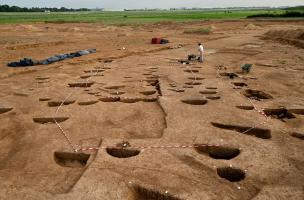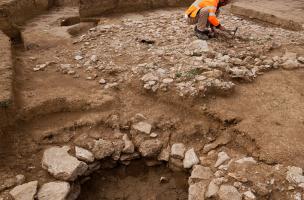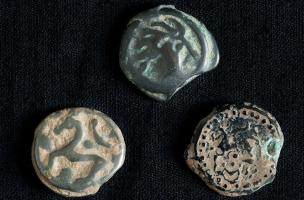You are here
Wissous and the parisii elite at the end of the Gaulish independence
An Inrap team is at present excavating, curated by the State (Drac - Regional Archaeological Service, Île de France), an important Gaulish site situated on the territory of the Paris Orly airport. This four-hectare site shows traces of occupation from the late Bronze Age (circa 800 BC) but is particularly interesting in revealing an important farm holding dating from the second century BC.
Important preventive excavations of this type conducted by Inrap have provided new data fundamentally changing our knowledge of the Gaulish period in France. Received ideas about the Gauls will be questioned from October 19, 2011 in an important temporary exhibition entitled, « Gaulois: une exposition renversante », at the Cité des sciences et de l’industrie. This site is a good example of this tendency.
An imposing Gaulish establishment
Inside the enclosure the space is segmented into two zones by an enormous rectangular ditch 7 metres wide and almost 3 metres deep. Such an undertaking mobilising considerable subsidies and an important labour force within an imposing agricultural exploitation is a sign both of power and of means. This ditch separates the dwelling area to the east, from the farming area, to the west.
Two consecutive buildings, covering about 200 square metres, occupy the residential area. Of an elongated ground plan they had rounded extremities. Wooden posts whose diameter suggests that they held up at least one floor supported these buildings. The constructional work was of wood, and walls of wattle and daub; the roof was thatched or of boarding. Of a size adapted for a family it was nonetheless the residence of a local elite.
Breeding occupied an important role in the agricultural area with cattle, pigs and also horses. Among the tools brought to light, a pruning knife shows that fruit trees were grown. Artisanal activities are also testified, weaving by the presence of loom-weights and spindle-whorls, metallurgy and the forge by slag and vitrified furnace walls.

Revealing waste
Ditches and refuse dumps reveal fibulae, bronze coins ("potins” ) struck by the Parisii, but also Roman wine amphorae (Dressel I)The discarding of metallic non-recycled goods is another sign of the affluence of the inhabitants who had the means of replacing rather than re-using the metal.
The strong presence of wine amphorae also shows the wealth of these Gauls who from the mid 2nd century BC imported a costly Italian wine.
No grave or burial ground has been discovered, but fragments of two human skulls are present in the enclosure ditches.
Situated on the territory of the Parisii, near the Gaulish way (later Roman) linking Lutetia to Cenabum (Orleans), the Gaulish farm of Wissous is a site of primary importance because of its implantation at the centre of the commercial networks of the region, its size, the variety and the richness of its goods and the trades that were practised there. The first preventive archaeological discovery of this type on the plateau of Orly, it is also noteworthy for the length of time it was inhabited, from the end of the Bronze Age to the Gallo-Roman period.
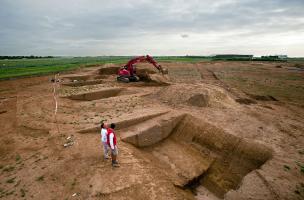


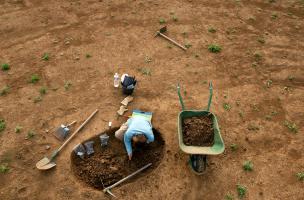

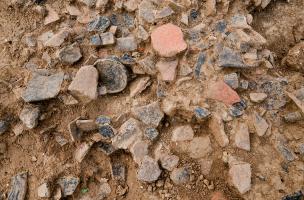

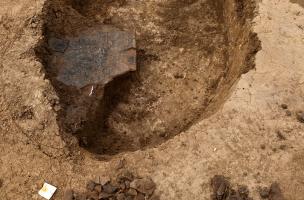
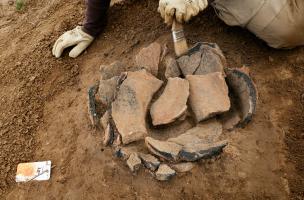

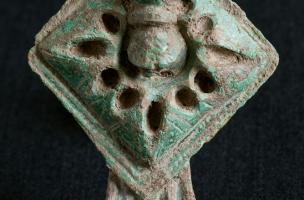
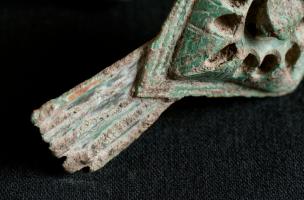
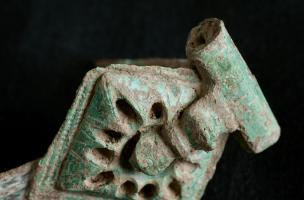



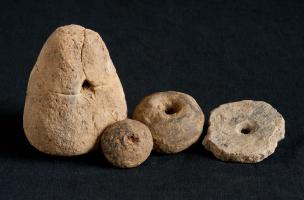

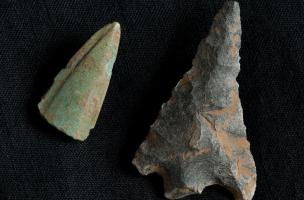
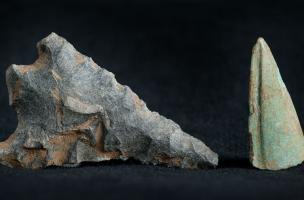


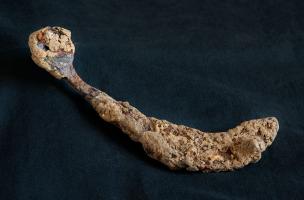
Mahaut Tyrrell
01 40 08 80 24
mahaut.tyrrell [at] inrap.fr
Laure Ferry
01 41 83 75 51
catherine.dureuil [at] inrap.fr

